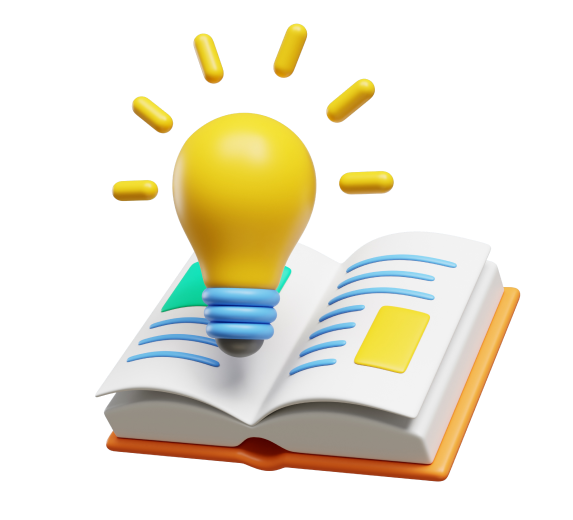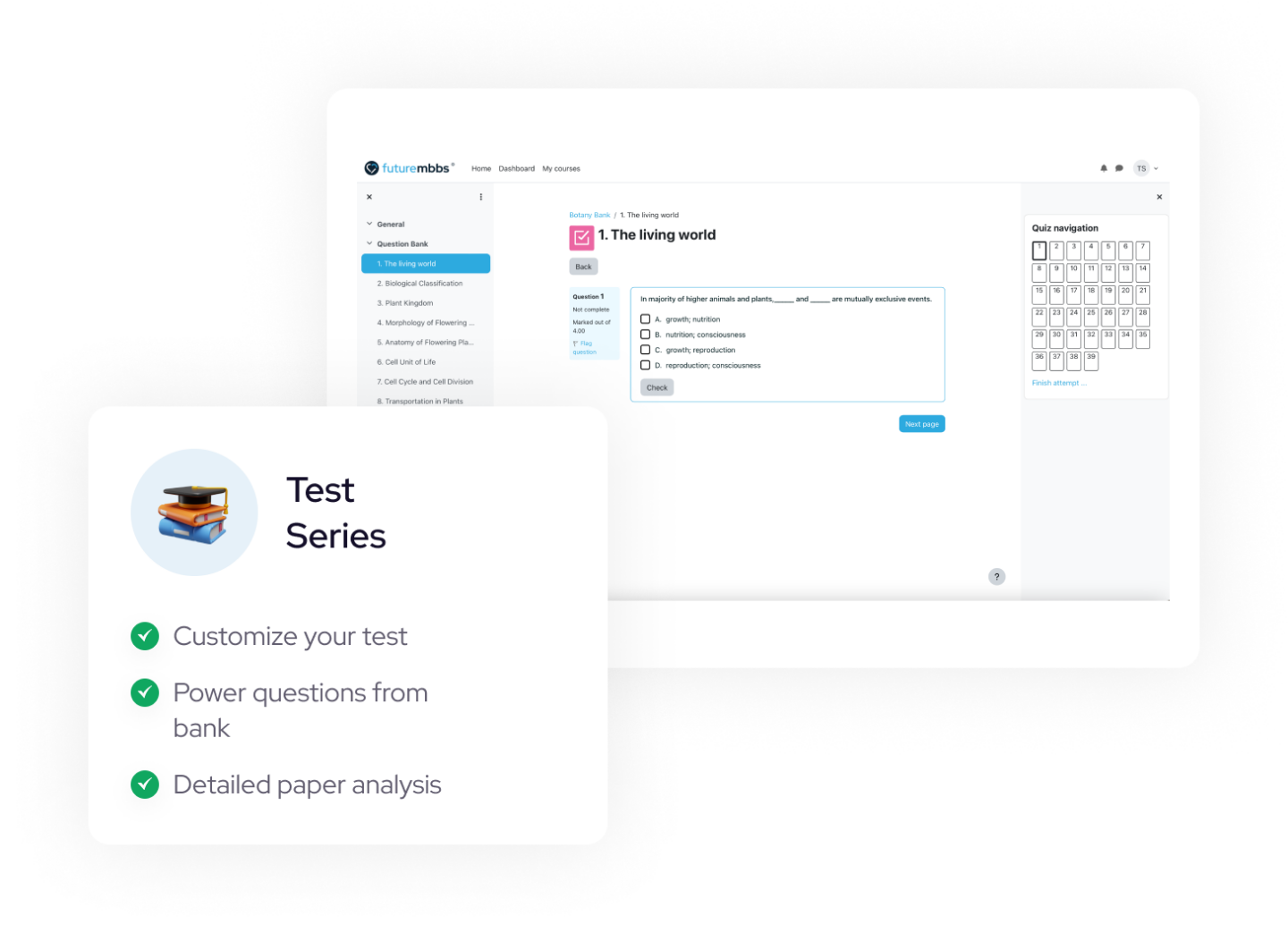
Crack NEET-UG
effortlessly 😍
NEETsheet combines the best of India’s EdTech teaching faculty, who have a proven track record of producing top NEET rankers. Ace the exam through the highest quality preparation.
Up to 90% scholarship on NEET courses
For 11th, 12th, and passed-out students
Dropper’s batch for NEET 2025
One-year NEET-UG course for class 12th-plus students.
- Expert faculty from leading EdTech companies
- 5000+ NEET practice questions from bank
- Live classes and recorded videos
- Unlimited mock tests & DPPs with solutions
- Regular doubt-solving classes
- Complete syllabus of 11th & 12th
Your NEET success toolkit: Everything you need to rank 🎉

NEET-UG courses
Learn from engaging live lectures and revisit key points with recorded sessions. Our experts cover the entire NEET-UG syllabus in detail, providing clear class notes and practice questions to boost your knowledge and exam skills.

Test series
Get exam-ready with our massive library of test series matching the latest NEET pattern. Sharpen your knowledge with chapter-wise and subject-wise tests, and master time management with full-length simulations.

Subject-specific courses
Transform your weaknesses into strengths with our tailored and subject-specific NEET courses. Dive deep into each subject, with dedicated lessons, extensive practice materials, and targeted assessments.
NEET-UG courses & test series 🎓
Our tailored courses and test series give top priority to the NCERT syllabus, a cornerstone for NEET success. Each program provides exclusive study tools, a structured curriculum with weekly schedules, and promotes interactive teacher-student engagement.
Find the perfect course for you

Our best-selling courses

Full NEET preparation course
Whether you're in 11th, 12th, or retaking NEET, we provide the best resources you need to excel.
- Access to platform: 7000+ questions, unlimited mock tests, test series
- Best live trainings: Live classes, revisions, doubt classes, class recordings, daily practice questions, annotated notes
- Parents inclusion: Online interaction of faculties with parents

Droppers Batch for NEET 2025
One-year NEET-UG course for class 12th+ students.
- 5000+ NEET practice questions from bank
- Live classes and recorded videos
- Live classes hours: Physics: 195 hrs; Chemistry: 216 hrs; Botany: 103 hrs; Zoology: 190 hrs
- Unlimited mock tests & DPPs with solutions
- Regular doubt-solving classes
- Complete syllabus of 11th & 12th

2-Year Program for Class 11
Two-year NEET-UG course for class 11th students.
- 5000+ NEET practice questions from bank
- Live classes and recorded videos
- Live classes hours: Physics: 295 hrs; Chemistry: 272 hrs; Botany: 143 hrs; Zoology: 178 hrs
- Unlimited mock tests & DPPs with solutions
- Regular doubt-solving classes
- Complete syllabus of 11th & 12th

Droppers Test Series
Designed by our top faculty to closely resemble NEET exam structures.
- 5000+ NEET practice questions from bank
- Create your own tests by selecting specific topics and questions
- Paper analysis for marks, speed, accuracy, and time taken
- Unlimited full syllabus mock tests
- Chapter-wise questions from question bank
- 24/7 available practice questions

Physics Course for Class 12
Master physics effortlessly with our specialized subject-specific NEET course.
- 2000+ NEET practice questions for physics
- Live classes and recorded videos
- 135 hours of live classes
- Unlimited Mock tests & DPPs with solutions
- Regular doubt-solving classes
- Annotated class notes
Why study with us?

India’s top EdTech faculty, together
Study under India’s finest EdTech faculty, known for producing top NEET rankers.

Tailored courses
Personalize your studies by selecting and exploring specific courses, subjects and practice questions whenever you want.

Daily live interactive classes
Live lessons from expert faculty. Students can ask questions and immediately get clarification.

Recorded lectures and notes
Get access to live class recordings and annotated live lecture notes all at one place.

Power question bank
Practice to perfection by generating endless distinct power questions on multiple topics.

Regular assessments and test series
Understand your competitive edge with regular assessments and test series based on latest pattern.

Doubt-clearing sessions
Get all your doubts resolved by our expert panel of teachers, ensuring you fully understand every concept.

Regular parent-teacher meetings (PTMs)
Receive thorough feedback and performance updates through our regular parent-teacher meetings.
Why we should be your top choice! ✨

>5000
NEET Questions

>1 year
Course duration

>216
Hours of live classes

>8
Classes per week
Cracking NEET starts here. Watch our free demo classes! 🩺
Are you curious in how NEETsheet will help you ace your exam? Watch our free demo classes and experience firsthand how our expert faculty simplifies complex topics with their engaging teaching methods and powerful NEET-cracking strategies. We will help you ace your NEET exam!
Level up your preparation with our tailored courses
Crafted by the industry experts, our NEET-UG courses ensure effective preparation for you to succeed in your exam!

The ultimate NEET courses
- Daily live classes with 24/7 lecture recordings:
Our dedicated teachers conduct daily live classes to help students reach their full potential. Enjoy 24/7 access to recorded lectures for anytime review and reinforcement. - Doubt solving sessions:
Strengthen your NEET preparation with interactive discussions and dedicated sessions to resolve all your doubts effectively. - Weekly, monthly, and full-length tests:
Evaluate your progress and refine your strategy with a comprehensive test series. Track your performance with detailed discussions led by our expert mentors. - Unlimited question library & DPPs:
Master challenging concepts and improve accuracy with unlimited practice questions covering every topic and regular daily Practice Problems (Daily Practice Problems).
The best of India’s EdTech teachers!
Our teachers have collaborated with India’s leading EdTech companies. We are excited to bring their expertise and knowledge directly to you!
- Expert faculty that has a history of producing top NEET rankers.
- Advanced teaching methods designed to ensure your success in NEET.

Diksha Sharma
Chemistry Faculty

Abhay Saxena
Physics Faculty

Shweta Gupta
Biology Faculty
Get exam-ready with our online test series
Elevate your exam readiness with NEETsheet's online test series, tailored to the NCERT syllabus. Our series is designed to enhance speed and memory retention, essential for achieving top rank.

Practice anytime, anywhere
- Chapter-by-chapter questions from question bank:
Gain an advantage over other NEET aspirants by practicing our curated set of high-weightage questions. - 24/7 availability and paper analysis:
Access questions and receive detailed paper analysis including marks, speed, accuracy, and time taken per question. - Flexible test series:
Take online tests from any location, allowing you to practice on the go.
Tailored practice experience
- Customizable test creation:
Design your own tests from a selection of 5000+ questions. Choose subjects, topics, number of questions, and set a timer to simulate exam conditions. - 5000+ practice questions:
Access a vast repository of practice questions covering all topics. - Mock tests & previous year question papers:
Prepare effectively with unlimited curated mock tests covering the entire NEET syllabus and practicing previous year papers.
Master your subjects with our specialized courses 💫
Our tailored NEET-UG courses are designed to help you overcome subject-specific challenges and turn them into strengths, ensuring success on your NEET journey.
- Bilingual
- Chemistry
Modern Periodic Table
Learn about the history, classification and properties of Modern Periodic Table.
- Bilingual
- Physics
Scalar and Vectors
Discover the difference between scalars and vectors in physics: understand magnitudes, directions, and their real-world applications!
- English
- Zoology
Control and Coordination
Explore the fascinating mechanisms of control and coordination in living organisms, uncovering how nervous and hormonal systems work together.
- Bilingual
- Botany
Cell: The Unit of Life
Understand the fundamental building blocks of life, their structure, and functions essential for all living organisms.
- English
- Physics
Law of Reflection
Explore the Law of Reflection: Learn how light bounces off surfaces, angle of incidence equals angle of reflection!
- English
- Chemistry
Classification of Matter
Ever wondered what matter is and how it is classified? Let's explore matter and its classification with some real life examples around us.

One-on-one classes
Our customized curriculum to match your
educational needs.
- Ask questions freely
- Personalized guidance and dedicated faculty
- Learn at your own pace
- Address specific challenges in an individual setting
Practice till perfection
Our Test Series, comprises part and full syllabus tests, is meticulously curated by experts,
ensuring that you get the best preparation resources at your fingertips.
- 1
- 2
- 3
Fortnightly Test
- Every 3 weeks
- Periodic tests designed to assess your understanding and reinforce your learning
Achievers Test
- Every 3 months
- A comprehensive test series aimed at evaluating your progress and identifying areas of improvement
Milestone Test
- At the end of the academic year
- This test covers full syllabus, providing you with the exact feel of the NEET examination. It's designed to test your readiness and boost your confidence
Resources for your best preparation
We also provide practice questions, class notes, and online mock test series for thorough exam preparation.

Practice Questions
- NCERT at fingertips
- Subject-wise mind maps
- Daily practice problems for NEET
- Fully solved step-by-step solutions
- Tips and tricks for NEET

Class notes and recordings
- Annotated class notes by experts
- Recording of the lectures
- Biology class 11 and 12
- Chemistry class 11 and 12
- Physics class 11 and 12
- Comprehensive chapters
- Additional study notes for NEET
- Study plans for NEET
- Formula chart

Test series
- Topic-wise MCQ tests for NEET
- NCERT-based tests for NEET
- AIIMS mock tests and previous-year question paper
- Detailed solutions for doubt clearance
What our students say about us 😎
Let’s kickstart your medical
journey with us! 🤝

Please complete the form below and we’ll be in touch to arrange a demo class for you.
FAQ - Frequently asked questions
Here you will find a collection of frequently asked questions about NEET-UG exam.
How can NEETsheet by futureMBBS assist me in achieving a top rank?
NEETsheet by futureMBBS is dedicated to helping you achieve a top rank through tailored resources and expert guidance. Our NEET UG courses cover the entire syllabus thoroughly, with subject-specific courses to target your challenges.
We offer over 5000+ practice questions, annotated notes, test series, and regular assessments to ensure your continuous improvement. Engage in more than 216 hours of live classes and regular doubt-solving classes with experienced mentors who have a proven track record of producing top NEET rankers. Our extensive question banks, mock tests, and detailed paper analysis help you familiarize yourself with the exam format. Additionally, our E-Learning courses and online portal provide 24/7 access to practice questions, allowing you to study anytime, anywhere. With NEETsheet, you receive the highest quality preparation to confidently ace the NEET exam.
Who will be conducting the classroom sessions, and what qualifications do they possess?
Our faculty consists of the best teachers from India's top EdTech companies, who have a proven track record of producing top NEET rankers. These experts bring advanced teaching methods to ensure your success in NEET. Our teachers emphasize a smart, strategic approach to exam preparation, focusing on refining your skills and providing guidance on note-making, time management, and effective revision techniques. With their extensive experience and dedication, our experts are committed to helping you achieve your highest potential.
How are the classes conducted? Can students interact with teachers?
In our online classes, teachers actively engage with students to ensure effective teaching and understanding. Students can interact with teachers using audio, video, and live chat features available on our online classroom platform. Additionally, we offer physical parent-teacher meetings (PTMs) for students in the Delhi-NCR region and virtual PTMs for those outside Delhi-NCR, ensuring comprehensive feedback and personalized support for all students.
Can I attend additional doubt-clearing sessions?
At futureMBBS, we prioritize building strong fundamentals in our students through regular doubt-clearing sessions. These sessions not only foster an environment where students feel comfortable raising any doubts but also encourage innovative problem-solving approaches. This approach strengthens academic foundations and also enhances overall student personality development.
Are there test series available for students?
We offer an online Test series for NEET, designed by a team of experts and experienced medical faculties. Our detailed paper analysis, including marks, speed, accuracy, and the time taken per question, identifies students' strengths and weaknesses. This comprehensive approach guides students for further improvement, ensuring focused growth in their areas of concern.
How can I schedule a free trial of the classes?
You can watch our Free Demo classes on the Course Page.





